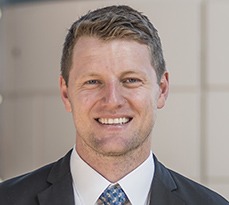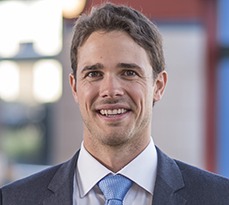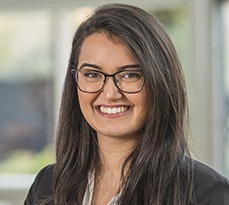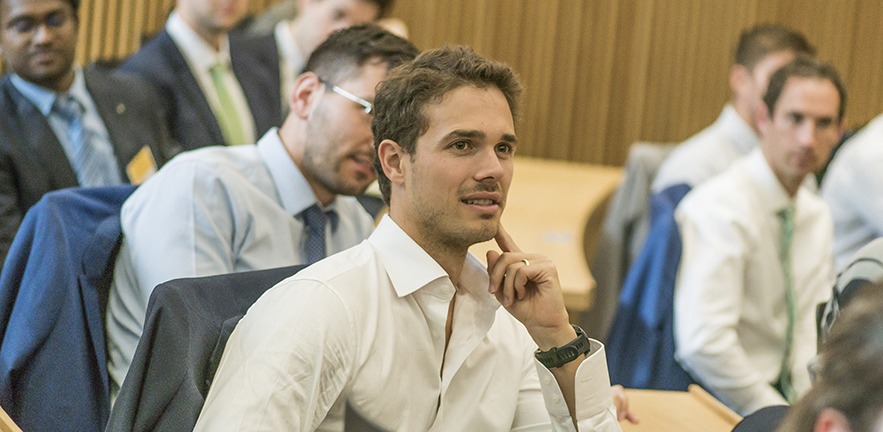Why an MBA was the next step for these family business professionals.
From bullet proof cars to real estate development and diamonds, we meet the business owners for whom growing and developing their family business meant stepping out for a year to sharpen their leadership skills and to get an MBA.
For Pieter Daneel, handing over the reins to his brother at their South African diamond manufacturing business was an essential part of its future business strategy.

“In a family business, you are immediately in a leadership role as one of the family members. You’ve got a responsibility to look after the business as well as the employees.
“When I initially started in the family business four years ago, I started with a blank page as I had no previous industry experience. It gave me a very big responsibility from day one. I had to take ownership of the situation and make the most of that opportunity. You learn very fast.”
But for Pieter he had always wanted to do an MBA and so it was always there in the back of his mind.
“What attracted me to Cambridge for an MBA was the opportunity to focus on my personal development and leadership skills, as well as the potential for global networking.”
He continues, “That’s a very important part of our business, and I intend to use those skills and take them back to South Africa to further grow our family business.
“With four years in the financial sector at Investec, and a further four years at the helm of Daneel Diamond Manufacturers, it was a good point in my life to explore the opportunity of an MBA.
“The Cambridge MBA has transformed me into a global citizen, and I feel that I have the tools and connections to conquer future business opportunities.
“My network in Africa and South Africa is vast and strong, but the MBA has broadened my horizons through working with and learning from 41 other countries. That is not something you can achieve through an MBA back home.”
What skills can an MBA deliver to support the growth of a business rooted in family?

For Mexico-based Simon Echeverri, Sales Director at Sky World, one of the five Latin American companies for the security sector Ballistics Group, broadening his horizons on a global stage was a key factor in considering an MBA.
“I wanted to broaden my panorama on how other businesses were managed and to learn about different management styles, as well as learning from those with different backgrounds on how their companies worked.”
With the skills that an MBA offered, Simon had ambitious growth plans for the business.
“I was used to a fast-moving environment at Sky World and I was used to implementing strategies without a proper structure, making mistakes along the way. But the Cambridge MBA has taught me both the soft and hard skills I will need to structure the strategy in a more organised way and avoid mistakes in future implementation.
“I was specifically looking for strategic, managerial, and consulting skills that would help me design and implement strategies in a more structured and analytical way.
“Adding these skills to my knowledge will allow me to understand business in a broader way and give me more tools to take the family business to the next level.”
For Simon, the practical elements and experiential learning of the Cambridge MBA were another factor in making his choice to study business at the University of Cambridge.
“Being able to work on a consulting project each term with real clients, as well as a team of classmates from a wide variety of backgrounds, has allowed me to learn in a holistic way.
“I have been able to learn from excellent professors, mentors, teammates and to learn strategic thinking and planning, for example, by the real experience of implementing it myself.”
For Heya Nasri, from Lebanon but working in a business based in Iraq, running the family business in real estate development was not a foregone conclusion.

“After studying Biology as an undergraduate, I decided that I wanted to explore the family business rather than a career in medicine. I started off in the family business as a Data Analyst. I was always curious about how the business was pieced together and so I worked my way into a lot of areas and sectors across the business. This ultimately led to my position as Developments Co-ordinator for the Real Estate sector of the family enterprise.”
Once at this level, Heya knew she would have to get more skills if she was to be part of the Nasri Group’s future growth.
“I had done enough research on my own to know that family businesses tend not to pass the second or third generation. Our family business is a first-generation family business, and it’s going to rely on me and my siblings. It is entirely in our hands. It’s either going to succeed or it is going to fail.
“I didn’t want to just be thrown into a position of leadership without the right skills behind me to succeed and lead. I knew that getting an MBA would be really important for me.”
Heya was particularly attracted to the technical aspects offered by an MBA, something that she felt she lacked from her existing degree.
“I was interested to learn the way organisations are structured and how that applies to business growth and success. For our business to be sustainable I wanted to learn and apply established global business practices.
“Coming from a non-quant background I have learnt so much in the MBA Corporate Finance and Financial Accounting courses, returning to the family business I can now see where practices may need to change and where there are areas for improvement.”
For Heya a one-year programme was key, being able to step back from the business for a shorter period, “It wasn’t an option to step back from the business for more than a year at most”.
For Simon the challenge of stepping back was the same, “I had two phones with me at all times in Cambridge. I would answer any call and message that came through. Even though I tried to separate myself from the business as much as possible during my MBA, many clients were still looking for me and I had to be there for them.”
Returning to the family firm with new perspective
Going back home to Mexico, Simon takes not only a new analytical way of thinking but also different leadership styles.
“The biggest challenge of any business is people management. I now have the theoretical knowledge, as well as having the opportunity to implement different leadership styles through the Cambridge MBA projects.”
In addition, “The Corporate Culture and Corporate Governance classes were eye opening for me and made me realise many things that will be great to change in the family business”.
For a family firm to grow and be sustainable in the future it is important to implement processes that allows the business to work by itself.
For Simon it was the Lean Six Sigma course that gave him, “An interesting portfolio of tools and frameworks that will help me reinvent the processes and make them flow in a more automated way when I return home”.
Finally, for Simon the learnings on digital transformation were paramount for the future. “I learnt the importance of digital transformation in a business and how to lead it. I chose the Digital Transformation Concentration and being in the Cambridge ‘Silicon Fen’ and at the University of Cambridge where artificial intelligence (AI) and machine learning (ML) are huge topics currently, allowed me to attend engineering lectures, as well as join the AI discussion club.
“I now have a different mindset and I am structuring a plan to transform the family business to continue thriving in the fourth industrial revolution.”
For Pieter too digital transformation is the key to future growth, “2020 has not only highlighted the importance of digital transformation, but also the value of a clearly defined strategy to deal with disruption. Having completed my MBA year during the outbreak of COVID-19 and with the new MBA skill set I now possess; I am better prepared to tackle the opportunities and challenges in our family business in the future”.
As Heya had realised in her previous leadership role, “I don’t think that I could do what I want to do in the future if I don’t do this MBA now”.
Stepping out of the family firm and applying a 360-degree view from many miles away has given these MBA graduates a totally new perspective on the future sustainability and growth of their business.


